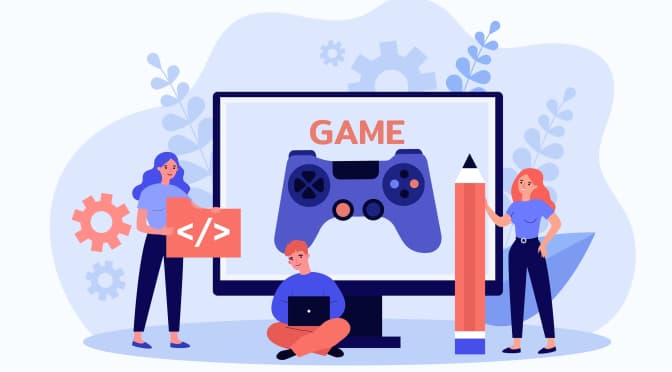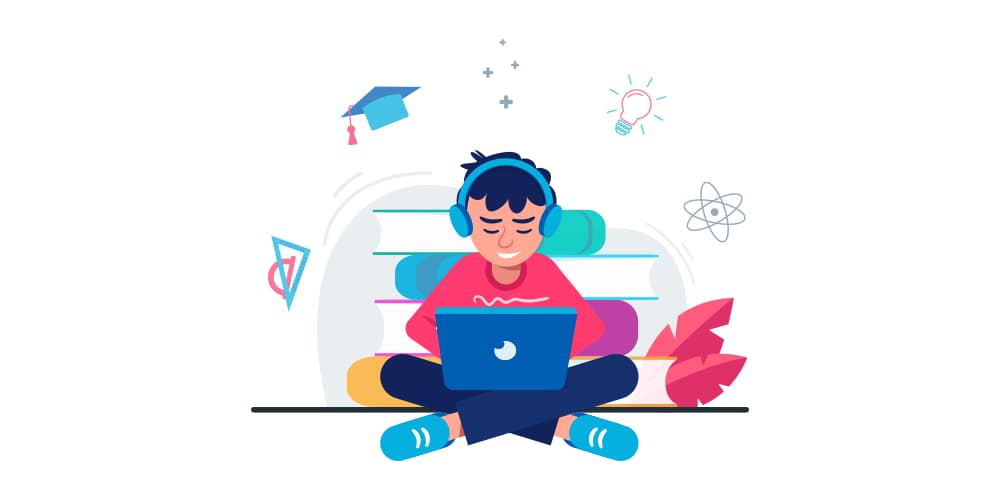In the digital age, gaming on the internet is challenging conventional teaching strategies and creating new avenues for the intellectual and social growth of learners. Online games have developed from a lighthearted past time to become an effective teaching tool that can improve our communication, memory, and thinking skills. This article looks at how different types of online gaming can improve learning while fostering the development of professional and personal skills.
Mental growth
Playing video games internet has a big effect on cognitive functions, such as sharpening focus, strengthening memory, and fostering problem-solving techniques. Let’s examine each of these facets in more detail.
Improving concentration
A crucial life skill that is needed in many contexts, such as education and the workplace, is concentration. Internet gaming – https://casinoudendansklicens.org/ requires players to be able to focus on dynamically changing game conditions. This requirement forces players to learn how to manage their attention in order to successfully respond to new challenges and tasks, which in turn improves this skill in everyday life. While playing, players learn to focus on critical details by filtering out irrelevant information, which improves their ability to concentrate even in the face of distractions.
Memory training
Games, especially of the strategy and role-playing genres, often require players to memorize vast amounts of information, from mechanics and rules to complex storylines and character traits. Consistent engagement with these demands fosters the growth of both short- and long-term memory. Players learn not only how to memorize, but also how to quickly recall relevant information, which can also be useful in academic and professional settings.
Problem solving
Participants of internet gaming are continually presented with difficult puzzles that call for the use of reason and strategy. Games often create scenarios that require imaginative problem-solving since traditional solutions are useless. This process not only trains analytical skills, but also teaches players to be flexible and adaptive, developing their ability to think critically and solve complex and multidimensional problems effectively.
Social skills
Internet gaming offers a unique opportunity to develop social skills in a virtual environment where players from different parts of the world can interact and collaborate. This includes both improving communication skills and increasing intercultural understanding.
Communication skills
Virtual games with multiplayer modes create an environment where communication is a key element of success. This fosters the development of several aspects of communication skills:
- Effective cooperation is fostered by games that require participants to plan and collaborate in order to accomplish shared objectives.
- Interpersonal skills: Engaging in games helps players develop their ability to speak under pressure, convey themselves succinctly, and make snap judgements.
- Developing empathy and understanding: Games help to develop understanding and respect for the opinions and feelings of others, which improves interpersonal relationships.
Cross-cultural communication
Online multiplayer games are an excellent medium for cross-cultural communication and education since they bring people from many nations and cultures together:
- Exploring Cultural Differences: Players come across a range of cultural customs and viewpoints, which promotes tolerance and understanding.
- Language practice: Language proficiency can be enhanced by interacting with people who speak different languages, particularly in casual and practical settings.
- Widening the social circle: Playing games on the internet facilitates international friendship-building, extending one’s social network and opening doors for cross-border connection.
Professional skill development through gaming on the internet
Playing games on the internet can help you improve a variety of professional abilities, such as technical proficiency and resource management. These are extremely versatile talents that can be used in many different types of professional settings.

Management of resources
In order to accomplish objectives in strategic and economic games, players must be able to manage scarce resources well. Among these abilities are:
- Resource Planning and Allocation: In order to make the most use of their time and material resources, participants in games are required to analyse situations and make decisions.
- Time Management: Games with time constraints teach players to optimize their actions within a given time frame, which has applications in project management and meeting deadlines.
- Financial Literacy: Managing economics in games, including budgeting and investing, helps develop an understanding of economic principles applicable to managing personal and corporate finances.
Technical skills
Gamers can hone their technical skills in a variety of internet games, particularly those pertaining to computer technology and programming. These skills include:
- System tuning &optimization: Gamers are often faced with the need to tune their gaming hardware for best performance, which includes skills related to hardware and software.
- Programming and Development: Creating mods, addons, and even your own games provides hands-on experience in programming, which can lead to a career in the IT industry.
- Technical Problem Solving: Through the process of playing and customizing games, players learn to identify and solve technical problems, a valuable skill in any technical profession.
Techniques for integrating gaming technologies into instruction
The integration of gaming technologies into the classroom opens up new avenues for enhancing student performance. By incorporating gamification and integrating games into educational curriculums, there is a significant opportunity to boost student interest and engagement. This approach also simplifies the process for students to grasp complex academic content. Let’s explore the two main strategies for embedding gaming technologies into educational settings:
Platforms for learning through games
Adding gamification elements to educational systems is one way to increase student participation and engagement in the learning process. The following features may be present on these platforms:
- Progress and Reward: Tracking students’ progress through a point, level, and achievement system motivates them to keep studying and produce new outcomes.
- Interactive tasks: Game-like tasks that require active participation help to improve learning and develop practical skills in an interesting and unobtrusive way.
- Competitive element:Including competitive elements encourages students or groups to improve their performance and participate fully in the learning process.
Using games to aid in learning
Incorporating games into the curriculum provides students with an alternative method to learn academic subjects. There are several ways to make this a reality:
- Simulation games: Students can study intricate systems and try out various tactics without having to worry about the repercussions of their decisions in the real world by playing games that simulate actual or fantastical settings. For instance, city management simulations can aid in the understanding of urban planning and economics.
- Role-playing games can be used with literature and history studies to help students gain a thorough understanding of the historical and cultural backgrounds. These activities allow students to pretend to be literary or historical figures.
- Logic games and puzzles related to math and science: Solving logic problems and puzzles in a playful way promotes analytical thinking and the growth of scientific problem-solving skills.
Conclusion
Playing games on the internet is a great way to develop a wide range of abilities, including social, professional, and mental ones. When these chances are used effectively, gaming technology can be further expanded and deepened, becoming an invaluable tool in both professional and educational contexts. The secret to success is to carefully and intentionally incorporate gaming components to educate and amuse while igniting creativity and critical thought. Future research indicates that the strategic integration of games into professional and educational settings will not only boost student engagement and motivation, but also help them get ready for successful careers in a range of industries.
